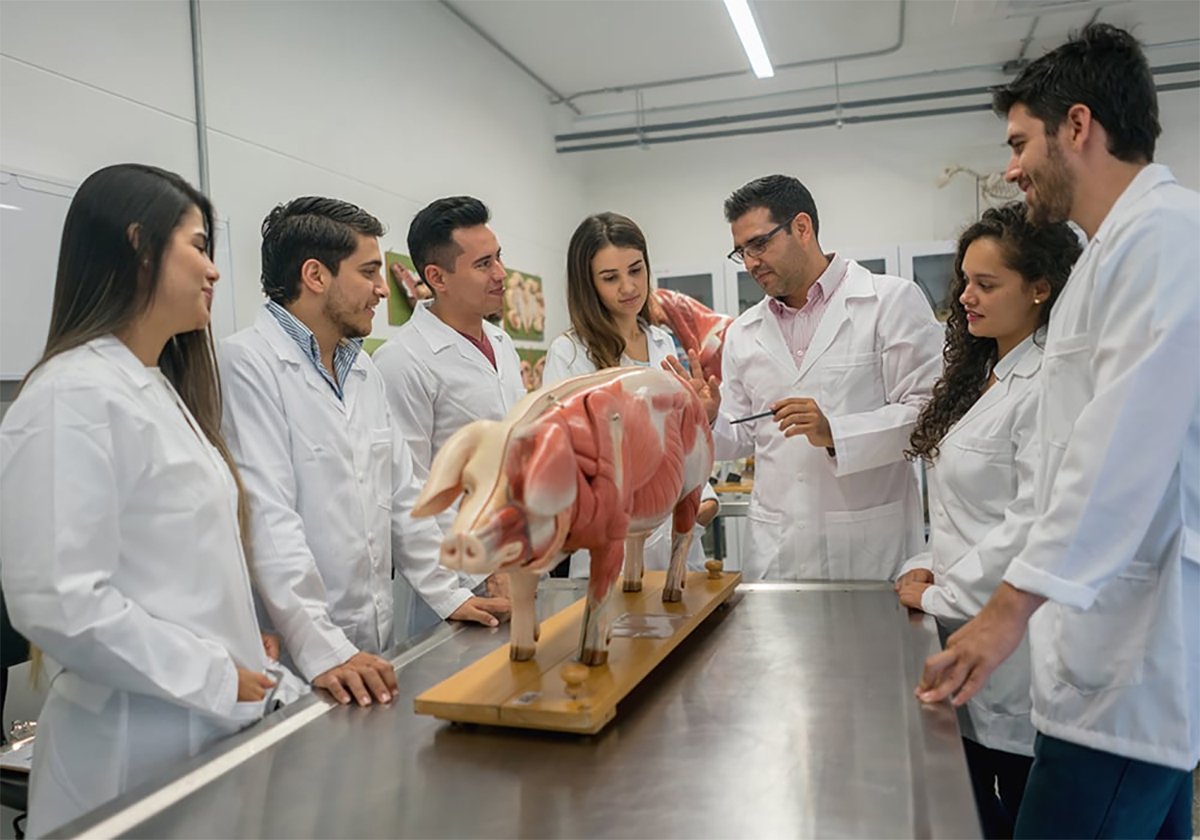Saskatchewan pioneer | Scottish resident brings mother’s ashes home to birthplace
Scottish resident Stuart Malcolm travelled thousands of kilometres to bring his mother’s ashes back to her birthplace in Scott, Sask.
“They do it a lot in Orkney when people die because up there they scatter the ashes on the (shores),” Stuart said. “People come back and relatives come back and scatter ashes and that’s what started me on it.”
Stuart’s grandfather, John Torrance Kennedy, was born in Tweedsmuir in the County of Peebles, Scotland, on Aug. 16, 1890. He then immigrated to Scott in 1912.
Read Also

Students urged to consider veterinary medicine
Alberta government makes $86.5 million investment in University of Calgary to double capacity for its veterinary medicine program to address labour shortages in the field.
As a member of the 48th Highlanders of Canada, he received land through a soldier grant.
One of the conditions that came with the land was that he was required to build a house there.
Stuart and his wife, Maggie, first visited Canada 12 years ago.
Knowing that his mother, Catherine, was from Canada, they began looking into the past. Her dementia made locating her Saskatchewan birthplace a challenge.
Stuart eventually received his mother’s birth certificate, which listed Scott as her place of birth.
“Once we kind of located Scott, once we found out that it actually was a place and Stuart’s mom wasn’t dreaming it, we decided to come and do this,” Maggie said. “And that’s what we’ve been doing for the past 12 years. We’ve just been researching as much as we can. It’s been really interesting.”
Stuart and Maggie began digging for birth, marriage and death certificates.
“We sent off to the Saskatchewan Archives who were so helpful … they sent us old copies of the papers that (Kennedy) signed the plots of land that he got, so it was really interesting. And from that we were able to get a map,” Maggie said.
The map, dated in 1922, pinpointed the Kennedy farm near Muddy Lake.
The soldier grant allowed Kennedy to obtain 160 acres for £10. Stuart and Maggie determined that he had built a four by eight metre house valued at $400. By 1914, Kennedy also had a crop and owned two cows.
“From what we can gather, he really carried on with that for quite a few years,” Stuart said. “And it says there’s no family in 1912, just him.”
A marriage certificate revealed that he married Mary Hyslop in 1917. Their first daughter, Catherine, was born on Sept. 14, 1920.
The paper trail in Saskatchewan ends there. Kennedy and his family returned to Scotland around 1924.
Stuart was not sure why they returned but suspects the isolation and cold on the Prairies might have been a factor.
During their research, Catherine indicated that she would have liked to see her home again. After she passed away last year, Stuart resolved to bring her ashes home.
Stuart and Maggie arrived in Scott last month, and while in town, they stopped a passing vehicle to help them locate Catherine’s first home.
The driver was Scott’s mayor Erik Schnell, who directed the couple to the town historian Albert Meid, who gave them directions to Muddy Lake.
Stuart and Maggie stopped at a nearby farm to confirm they were on the right path.
Sandra Kondratowicz showed them a trail on the farm, which led them to where Stuart’s grandfather started his life on the prairie.
In an email sent to The Western Producer, Stuart described his experience.
“We managed to scatter my mothers ashes in what could only be described as a beautiful and peaceful place,” he wrote.
“We saw scarring on the field where (the Kennedy) home and outbuildings stood but were demolished a couple of years ago. It is a shame we never got to see these.”
Before leaving Scott, they again visited Meid, who gave them a photo of the hospital where Catherine was born.
“We had the little container my mum’s ashes were in. It was a pretty little round container with trees and bluebells on it and we did not really want to throw it away,” Stuart said. “Albert made a heartfelt gesture to us and he said that he would bury it in the local graveyard in Scott.”
Stuart said it was an emotional experience.
“This was the last and final thing that I could do for my mum. She is home.”














